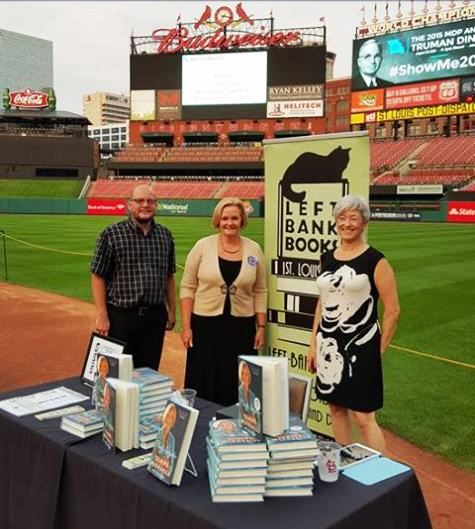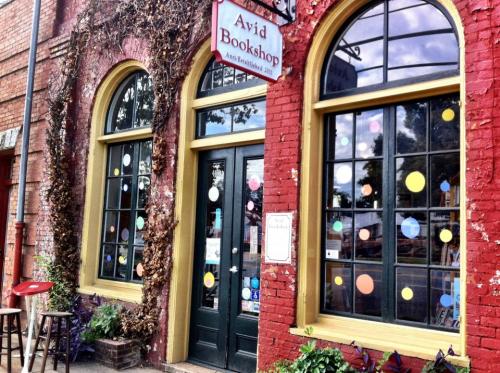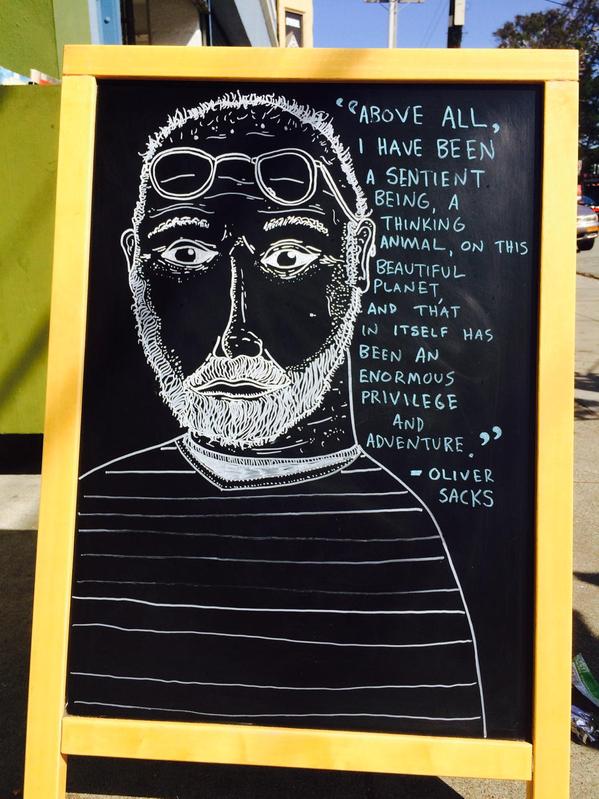 Marriage equality has created so much conversation in the United States recently that it is perhaps easy to forget that gay rights are a global battleground. This first novel from Chinelo Okparanta (after the story collection Happiness, Like Water) throws into sharp relief the historical and continuing struggles of the LGBTQ population of Nigeria.
Marriage equality has created so much conversation in the United States recently that it is perhaps easy to forget that gay rights are a global battleground. This first novel from Chinelo Okparanta (after the story collection Happiness, Like Water) throws into sharp relief the historical and continuing struggles of the LGBTQ population of Nigeria.
After Ijeoma's father dies in a bombing raid during the Nigerian civil war in 1968, she is sent to live with a grammar school teacher and his wife while Ijeoma's mother returns to her parents' village, promising to send for her. Weeks and then months pass without any summons. While she waits, Ijeoma becomes a de facto servant to her hosts, but her lot is lightened when she rescues an orphaned girl her age, Amina. Although Amina belongs to the Hausa, which means her people were on the opposite side of the war from Ijeoma's, the teacher and his wife grudgingly agree to let her stay. The girls play together, work side by side and share a bed. Soon their friendship blossoms into first love, but when their feelings are discovered, they face severe consequences. So begins Ijeoma's life as a lesbian in deeply religious Nigeria, where homosexual relationships are not accepted. To Ijeoma, though, none of the religious reeducation her mother forces on her is dissuades her from her feelings. The examples her mother takes from the Bible to prove that homosexuality is an abomination only convince Ijeoma that society treats women cruelly. As she grows to womanhood, Ijeoma constantly faces the complications of hiding her true self, the impossibility of fitting into the single mold offered to women in her culture.
Though understandably filled with sorrow, Ijeoma's life also reflects a spirit so strong even its owner cannot break it. Tragedy and oppression shape her path, but her inarguable sense of self and her longing to experience great love make turning away from Okparanta's heroine impossible. While Ijeoma is a multi-faceted character who thinks and feels deeply, at her core she echoes the simple human desire to find acceptance for her true self. Okparanta dexterously layers her story with historical events and Nigerian folktales to give a fuller picture of both the beauty and conflict of the country and its cultures. Despite an endnote that emphasizes the continuing lack of acceptance for anything other than heterosexuality in Nigeria, Okparanta still manages to leave readers hopeful for a better future through love and courage. --Jaclyn Fulwood, blogger at Infinite Reads
Shelf Talker: A young girl falls in love with another girl and faces persecution in a story that gives voice to the struggles of Nigeria's LGBTQ population.
 Books-A-Million is converting one of its two stores in Gainesville, Fla., into a 2nd & Charles store, the Gainesville Sun reported. 2nd & Charles stores buy and sell used books and other media, including CDs, DVDs and video games.
Books-A-Million is converting one of its two stores in Gainesville, Fla., into a 2nd & Charles store, the Gainesville Sun reported. 2nd & Charles stores buy and sell used books and other media, including CDs, DVDs and video games.












 While older generations may consider themselves the last guardians of the grammar gates, a new survey commissioned by Dictionary.com revealed that
While older generations may consider themselves the last guardians of the grammar gates, a new survey commissioned by Dictionary.com revealed that 

 Since opening
Since opening  A memorial tweet yesterday from
A memorial tweet yesterday from 
 My First Book of Football: A Rookie Book
My First Book of Football: A Rookie Book Marriage equality has created so much conversation in the United States recently that it is perhaps easy to forget that gay rights are a global battleground. This first novel from Chinelo Okparanta (after the story collection
Marriage equality has created so much conversation in the United States recently that it is perhaps easy to forget that gay rights are a global battleground. This first novel from Chinelo Okparanta (after the story collection 